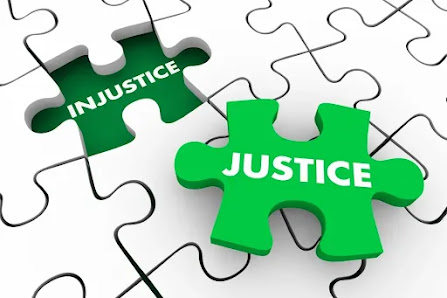The Rise of the Machines or the End of Attorneys?
 |
| Courtesy of Law Technology Today |
Of the many professions protected by regulatory oversight, the legal profession is one of them. This is informed by the fact that it has been stable since the industrial revolution and is mostly protected from external threats. The numerous protectionist professional standards and regulations that regulate decency and ethics and prevent lawyers from being overthrown serve to defend this privilege. Despite the fact that it is protected by rules and is rooted in tradition, the legal profession may not be able to withstand the widespread impact of the digital revolution for long.
Fredrich Von Savigny’s "Fiction Theory of Corporations" holds that corporations have existence but lack real personality save that given by the law, which ultimately regards them as persons. Champions of artificial intelligence have mirrored this theory and equated artificial intelligence with corporations in the legal field. They claim that the existence of AI is in software, humanoid form, and physically through robots, which ultimately proves or disproves it. They also claim that AI can actually function legally within its inherent rights and obligations, hence conferring upon it the title "legal person." The overarching question, however, has been whether consciousness, as a human function, can be attributed to technological advancements.
The advent and rapid advancement of modern technology have resulted in an intrusion and attack on the legal niche. As surreal as it may sound, technology’s progeny, dubbed "robot lawyer" and developed by Do Not Pay, is gearing up for its US courtroom debut on February 22, 2023. This has yet to be confirmed. Through headphones and other devices, the simulated "lawyer" is said to give defendants prompts on how to best dispose of their case. This has sparked a lot of debate, with both sides taking sides. Despite artificial intelligence being adopted and used to give evidence in the House of Lords on October 22, 2022, there is a catch; generally, mobile phones, headphones, and other devices are not permitted in courtrooms. This then begs the question, "How will these defendants relying on the "robot lawyer" circumvent this general rule?"
Though technically within the rules, I do not think that it is in the spirit of the rules. In the defense of the developers and their argument as it stands, the court has to consider the device(s) as "hearing aids" and hence allow the defendants to argue their cases under the direct influence of the robot lawyer. If this is the case, and if it is accepted, the ultimate implication for the procedural rules that underpin our legal system will be that rules can be bent to best serve the elite's interests.
Other implications of this arrival go far beyond the legal realm. Chemistry 101: To change a solid into a liquid, one requires a substantial amount of heat. Mirroring this chemical implication to what we have at hand, it suffices to say that moving from human lawyers to simulated lawyers will demand a substantial amount of input. The magnitude of the input may be felt economically through the skills employed to develop the robots and the greater negative impact it has on replacing the lawyers.
Because of its protectionist inbuilt mechanisms, such as developed rules and procedures, the legal profession has stood out and thrived in the competitive professional ecosystem. Intuition, as one of the many assets at the disposal of lawyers, begs the question of the extent to which it is possible to give a systematic account of our thoughtful evaluations of both the just and the unjust. It asserts that the issue of deciding how much importance to give to conflicting ideals of justice cannot have a practical solution. This being the case, it would be injudicious to assign this task to technology just to uphold modesty.
Just like any other humanly-developed system, robot lawyers and other technological advancements to replace the intuitive human labor in courtrooms are prone to error and susceptible to threats such as cybercrime. Cybercrimes such as the one in 2007 that saw Russian hackers disrupt services in Estonian e-government networks offer us a practical example of how great the damage can be. Adoption and implementation of AI technology in the judiciary can become a loophole in the judicial system, thereby creating an exploitation area for these criminals, especially in third-world countries where technology and skill in the field are scarce.
Liability has also been a topic of interest in this debate. The Black Law Dictionary defines the term as the bond between the wrongdoer and the remedy of the wrong. Human lawyers are legally obligated and enforceable through sanctions. This then raises the question, "Will robot lawyers be found liable in cases of damage or any loss occasioned by their inadequacies?" The correct answer is that the action completed by the subordinate (robot) will be borne by the supervising party (humans).
To summarize, the use of artificial intelligence in the legal field can only be a detriment to human lawyers and, in the end, an attack on an already developed and thriving legal niche.
Devaline Rioba
Law Review Editor at the UNLJ



Comments
Post a Comment